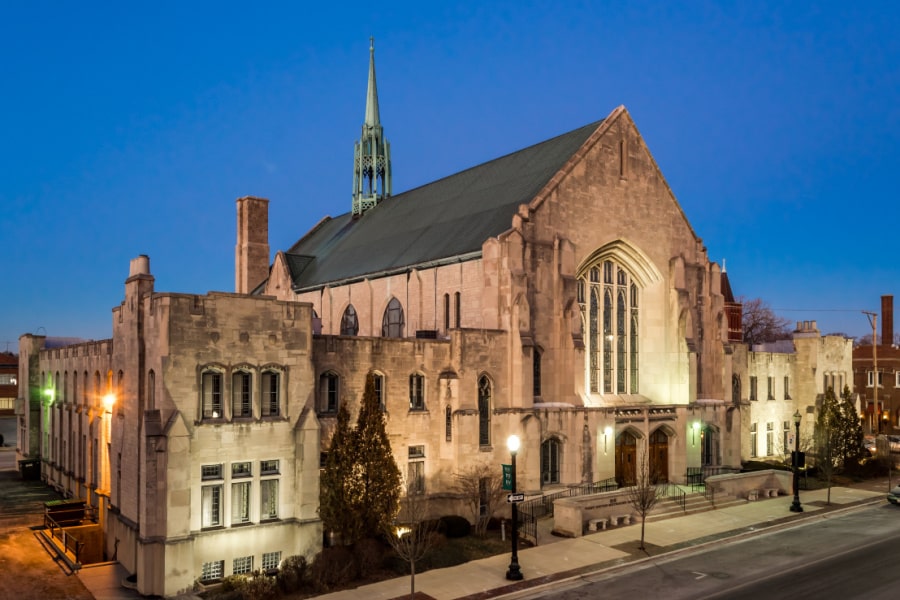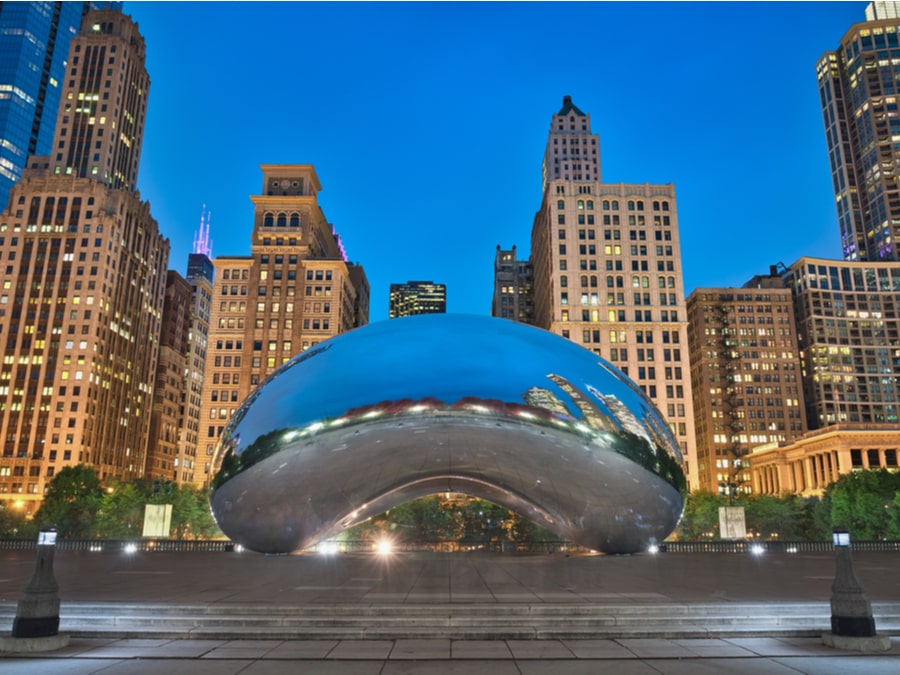Illinois is a state located in the Midwest of the United States. This state is a major economic hub in the country and is well known for its diverse industries, including manufacturing, agriculture, and finance. Chicago is its largest city and, at the same time, one of the most important cities in the country, which plays a significant role in the state’s economy, particularly in sectors like finance, technology, and transportation.
Despite the rich culture and economic strengths, Illinois has faced diverse challenges in the last decade, such as budgetary pressures and income inequality that keep trending up and have, at the same time, helped to the increase in substance abuse. This state has been heavily impacted by the opioid crisis and substance abuse, which have led to a significant rise in overdose deaths and strained public health resources.
Substance abuse has created an economic toll that includes billions in healthcare costs, lost productivity, and increased demand for treatment services, and even when the state has implemented initiatives to combat the crisis, it is a fact that substance abuse remains a critical issue affecting its communities and stability.
Table Of Contents:
Drug and Alcohol Abuse in Illinois
Illinois ranks as one of the states that has been significantly affected by substance abuse, especially when talking about opioid and alcohol use in the US. This state has experienced a dramatic rise in opioid-related deaths, and just in 2021, there were over 3,000 fatalities reported, which makes this state struggling with significant substance abuse challenges, particularly involving opioids and alcohol.
Like in the rest of the country, the opioid crisis in Illinois has been exacerbated by the surge in synthetic opioids like fentanyl, which has led to a marked increase in overdose deaths. In fact, in 2020, the state reported approximately 2,944 opioid-related fatalities, a stark rise from previous years, which could be an indicator of the severity of the crisis.
Illinois is not alone in the opioid crisis; in reality, the trend in Illinois aligns with a broader national issue. However, the state has been particularly hard hit by this public health problem.
Besides opioids, alcohol abuse remains a persistent problem in the state, contributing to about 1,388 deaths annually. Excessive alcohol consumption is prevalent, particularly in urban areas like Chicago, where nearly 60% of residents reported alcohol use in the past 30 days in a survey made in 2021.
Even when opioids and alcohol are the biggest challenges, Illinois faces problems with other substances. Approximately 19% of adults in Illinois have previously reported illicit drug use. Cocaine and methamphetamine are among the other drugs of concern, particularly in urban centers.
Cocaine use, in particular, remains a significant issue, with non-Hispanic Black populations in Chicago experiencing disproportionately high rates of cocaine-related overdoses and fatalities. Methamphetamine use, while less widespread than opioids, continues to be a problem in certain areas of the state.
Rehab Treatment Centers in Illinois
Illinois is home to numerous rehab centers that offer comprehensive care for individuals struggling with substance abuse and mental health issues. These centers provide a variety of services, including inpatient and outpatient programs, medical detox, dual diagnosis treatment, and specialized care for different populations.
Inpatient Rehab Illinois
As of 2020, Illinois had around 371 treatment facilities offering inpatient services. These facilities provide a structured and supportive environment for individuals battling addiction. The average length of stay in these inpatient facilities typically ranges from 30 to 90 days, depending on the individual’s treatment needs.
Outpatient Rehab Illinois
Illinois had 755 outpatient facilities in 2020, offering flexible treatment options for those who require ongoing support while maintaining daily responsibilities. These programs range in intensity, with some requiring only a few hours per week and others involving daily sessions.
Alcohol Rehab Illinois
In 2020, Illinois had 489 facilities dedicated to providing specialized services for alcohol addiction. These facilities offered essential services such as detoxification, counseling, and long-term recovery strategies tailored specifically to address the complexities of alcohol dependency.
Alcohol addiction keeps trending in Chicago, and as a reflection of this, by 2024, the number of these specialized facilities in Illinois had grown to approximately 510, reflecting the state’s ongoing efforts to combat alcohol addiction more effectively.
The increase in the number of facilities highlights the recognition of the continued need for accessible and high-quality treatment options across the state. The expansion also aligns with broader initiatives to integrate more holistic, evidence-based approaches to addiction treatment, ensuring that individuals struggling with alcohol use disorders receive the comprehensive care necessary for successful and sustainable long-term recovery.
Mental Health and Co-occurring Disorders
Dual diagnosis is a reality, and in Illinois, 502 facilities are equipped to treat patients with co-occurring mental health and substance use disorders. This integrated approach is crucial as it addresses the complex needs of individuals who suffer from both mental health issues and addiction.
Costs of Rehab in Illinois
As in any other place, the costs of rehab in Illinois are directly related to the duration of the program, the type of program, and the level of comfort offered. Here are some estimates of the prices for this state:
Outpatient Rehab
Prices can go from $1,500 to $10,000 for a 30-day program.
Inpatient Rehab
Prices can go from 6,000 to $20,000 for a 30-day program; long-term programs can cost around $20,000 to $60,000 or more.
Detoxification Only (Detox)
Prices can go from $1,000 to $5,000 for a 3- to 7-day program.
Medication-Assisted Treatment (MAT)
Prices can go from $500 to $1,200 per month.
Luxury Rehab
Prices can go from $30,000 to $100,000 or more for a 30-day program.
| Type of Rehab | Cost Range |
|---|---|
| Outpatient Rehab | $1,500 to $10,000 (30 days) |
| Inpatient Rehab | $6,000 to $20,000 (30 days) |
| Detoxification | $1,000 to $5,000 (3-7 days) |
| Medication-Assisted Treatment (MAT) | $500 to $1,200 per month |
| Luxury Rehab | $30,000 to $100,000 (30 days) |
Insurance and Payment Options
It is well known that rehab can be very expensive. In Illinois, a lot of actions have been taken to make treatment more accessible, such as ensuring that many facilities accept various forms of insurance, including private health insurance, Medicaid, and Medicare.
In 2020, a significant number of facilities (approximately 629) were equipped to accept Medicaid. Additionally, 399 facilities in the state accepted Medicare. These options greatly reduce some of the financial barriers to accessing necessary treatment, ensuring that more individuals can receive the care they need.
Beyond insurance, Illinois facilities have also implemented sliding fee scales and even offer treatment at no charge for those who qualify based on financial need. In 2020, 341 facilities provided different financial assistance options, reflecting the state’s commitment to making treatment available to all, regardless of their financial situation.
| Year | Facilities Accepting Medicaid | Facilities Accepting Medicare | Facilities Offering Sliding Fee Scale/Free Treatment |
|---|---|---|---|
| 2020 | 629 | 399 | 341 |
| 2024 | 670 | 415 | 360 |
Best Rehab Centers in Illinois
Here is a list of the top-rated rehab centers in Illinois:
-
{{ hub.label }}
{{ hub.title }}
- {{ mainTag }}
{{ hub.address }}
No results for these selections.
-
Treatment Center
Adolescent Growth – Lombard, Illinois
19W706 E 13th Pl, Lombard, IL
-
Behavioral health provider
Footprints to Recovery Rehab Provider: Help Since 2014
411 W River Rd, Elgin, IL
Drug Rehab in Illinois – Bottom Line
Illinois is part of the long list of states that are struggling with a serious substance abuse crisis, particularly concerning opioids and alcohol. The state has made significant strides in expanding access to addiction treatment services, with a variety of outpatient and inpatient programs available to support recovery. Illinois has also implemented various public health initiatives to combat substance abuse and improve treatment accessibility, including Medicaid expansion and community-based programs that make addiction treatment possible for everybody and according to the individual’s financial situation.
Frequently Asked Questions
Are there luxury alcohol treatment centers in Illinois?
Yes, there are around 15 luxury alcohol treatment centers in Illinois. These facilities offer high-end amenities and personalized care in a more comfortable and often private setting. Services at luxury rehab centers may include private rooms, gourmet meals, spa services, fitness facilities, and holistic therapies such as yoga and meditation, in addition to traditional evidence-based treatment methods.
Are there rehab programs in Illinois for teens?
Illinois has approximately 20 to 30 rehab programs specifically designed for teens and young adults. These programs are spread across the state and focus on addressing the unique challenges that adolescents face, such as peer pressure, academic stress, and family issues, in addition to substance use disorders.
Can I work while attending rehab in Illinois?
Outpatient programs in Illinois are designed to treat individuals who need to maintain their jobs while receiving treatment. These programs often offer flexible scheduling, including evening or weekend sessions, to allow patients to continue working while attending therapy.
Are there gender-specific rehab programs in Illinois?
Yes, Illinois has approximately 30 to 40 gender-specific rehab programs designed to address the unique needs of men and women in recovery. These programs often focus on issues such as trauma, domestic violence, and parenting challenges, which can be more prevalent in one gender.
Hope Without Commitment
Find the best treatment options. Call our free and confidential helpline
Most private insurances accepted
Find Drug Rehabilitation Centers Near You Anywhere In the US
Addiction Resource team has compiled an extensive list of the top drug rehabilitation facilities around the country. Click on the state you are interested in, and you'll get a list of the best centers in the area, along with their levels of care, working hours, and contact information. Haven't found the rehab you need? Call the toll-free helpline below for professional assistance.

- Alabama
- Alaska
- Arizona
- Arkansas
- California
- Colorado
- Connecticut
- Delaware
- Florida
- Georgia
- Hawaii
- Idaho
- Illinois
- Indiana
- Iowa
- Kansas
- Kentucky
- Louisiana
- Maine
- Maryland
- Massachusetts
- Michigan
- Minnesota
- Mississippi
- Missouri
- Montana
- Nebraska
- Nevada
- New Hampshire
- New Jersey
- New Mexico
- New York
- North Carolina
- North Dakota
- Ohio
- Oklahoma
- Oregon
- Pennsylvania
- Rhode Island
- South Carolina
- South Dakota
- Tennessee
- Texas
- Utah
- Vermont
- Virginia
- Washington
- West Virginia
- Wisconsin
- Wyoming
Page Sources
- Illinois.gov: Why Illinois?
- Federal Communications Commission: Focus on Broadband and Opioids
- NCDAS: Drug Abuse Statistics
- World Population Review: Drug Use by State 2024
- Illinois Department of Public Health: Opioid Data Dashboard
- SAMHSA: Illinois
- National Survey of Substance Abuse Treatment Services. (2021, July 14). https://www.samhsa.gov/data/data-we-collect/n-ssats-national-survey-substance-abuse-treatment-services
- Alcohol Abuse Statistics [2023]: National + State Data - NCDAS. (2024, May 2). NCDAS. https://drugabusestatistics.org/alcohol-abuse-statistics/

 Authored by
Authored by  Reviewed by
Reviewed by 






